Search Results
Search
Filter results
Advanced Filters
Your search returned 562 Solutions
-
Assistive technologies and teacher training in mainstream schools
The "Active Inclusion" project introduces assistive technologies and learning possibilities into primary schools and carries out networking and lobbying activities. Also the programme offers trainings for teachers from participating schools as well as educational software programmes for children with disabilities.
Open The Windows, North Macedonia -
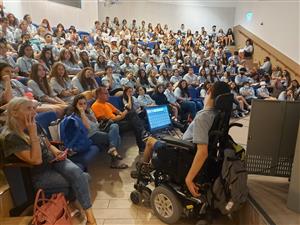
Comprehensive support for young people with disabilities after their school education
Krembo Wings from Israel initiated the ‘Paving the Way to Independent Life’ programme in 2002 to support people with disabilities after their schooling and to help them develop soft skills and life skills. Managed by people both with and without disabilities, the programme benefits around 250 young graduates each year.
Krembo Wings, Paving the Way to Independent Life programme, Israel -
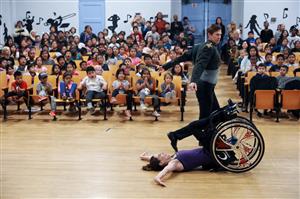
A professional dance company educating youth about disability inclusion in mainstream schools
Infinite Flow, U.S.: A Los Angeles-based inclusive dance company employing dancers with and without disabilities. Focuses on performance and education. Reached some 10,000 youth and 25 mainstream schools by 2023.
Elementary School Assemblies and ‘Scoops of Inclusion’, United States of America -
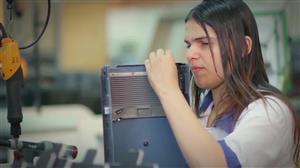
Online job recruitment platform for people with disabilities
The online platform includes a behavioural profile and e-learning courses. An algorithm matches candidates to suitable jobs based on geolocation, education, salary requirements, expertise, and behavioural profile. Between 2015 and 2020 over 7,000 people with disabilities have thus found a job.
Egalite Inclusion & Diversity, Egalite Inclusion & Diversity, Brazil -
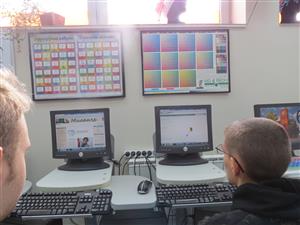
An e-learning platform for audio and video learning materials
The school portal "Milance" has created an e-learning platform, poviding basic information on various topics free of charge. In 2016, these were language skills, mathematics and science in various audio and video formats. In order to reach children outside school, seminars for representatives of disabled people were organised.
School for Elementary and Secondary Education - Milan Petrovic, Serbia -
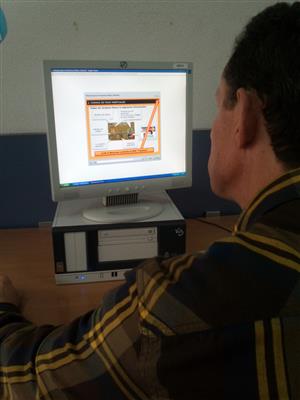
Learning to manage one ́s own personal finances
The goal of Inclusive Finances is to promote the capacity of people with learning disabilities to manage their personal finances in an autonomous way, with the specific goals of: learning basic financial concepts, improving one’s capacity to use money responsibly and applying the acquired financial knowledge to the labour market.
ONCE Foundation, Spain -
Being employed by a university for the duration of PhD study
Promi ("Promotion inclusive") enables and promotes postgraduate education for students with disabilities. Initiated in 2012, 45 45 graduates have been placed in PhD programmes at their university by 2016 and provided with employment for the duration of their studies at one of the 21 partner universitites of Promi.
University of Koeln, project “Promi”, Germany -
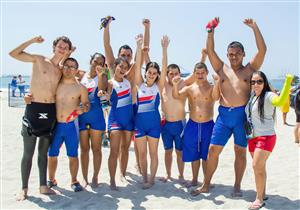
Fostering inclusive education in Latin America through youth leadership and sports
Escuelas Unificadas by Special Olympics Latin America: Promotes inclusive environments through sports and leadership activities for children with and without intellectual disabilities. Implemented in seven countries, reaching over 16,000 participants by 2023.
Escuelas Unificadas (Unified Schools), Brazil -
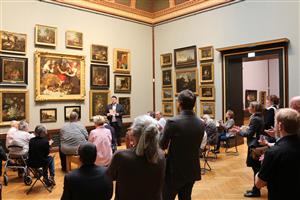
Training people with disabilities to be museum guides
Capito Mecklenburg-Vorpommern, together with the Staatliches Museum Schwerin, has developed a course that trains people with disabilities as art mediators. The course not only teaches art history, but also skills in dealing in dealing and communicating with different visitors or in handling difficult situations.
capito Mecklenburg-Vorpommern, New Ways to Art, Germany -
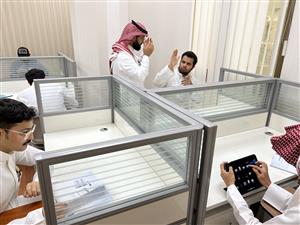
Inclusion of deaf students in higher education
King Abdulaziz University (KAU), Saudi Arabia: Developed 'We ‘Hear’ You!' to improve Arabic language skills of deaf students. From 2018 to 2023, admissions of deaf students increased from 18 to 100 in fashion design and digital media.
We “Hear” You!, Saudi Arabia
- Page 1
- Page 2
- Page 3
- Page 4
- Page 5
- Page 6
- Page 7
- Page 8
- Page 9
- Page 10
- Page 11
- Page 12
- Page 13
- Page 14
- Page 15
- Page 16
- Page 17
- Page 18
- Page 19
- Page 20
- Page 21
- Page 22
- Page 23
- Page 24
- Page 25
- Page 26
- Page 27
- Page 28
- Page 29
- Page 30
- Page 31
- Page 32
- Page 33
- Page 34
- Page 35
- Page 36
- Page 37
- Page 38
- Page 39
- Page 40
- Page 41
- Page 42
- Page 43
- Page 44
- Page 45
- Page 46
- Page 47
- Page 48
- Page 49
- Page 50
- Page 51
- Page 52
- Page 53
- Page 54
- Page 55
- Page 56
- Page 57